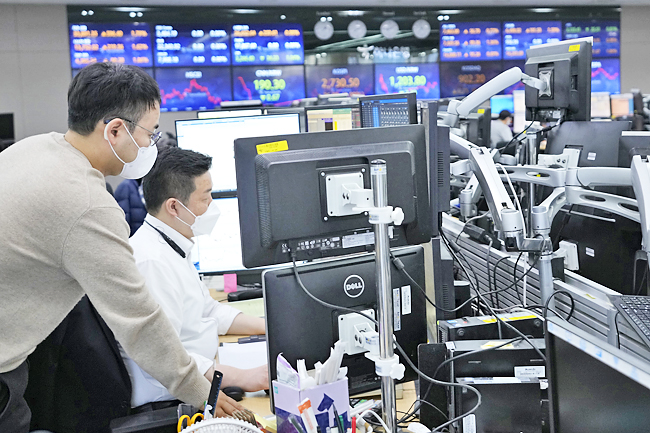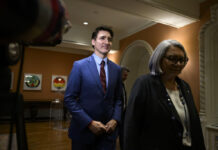BEIJING (AP) – Global stock markets were mixed yesterday and oil prices jumped another USD5 per barrel after the head of the Federal Reserve said he supports a smaller rise in interest rates than some expected.
London and Tokyo advanced while Paris and Frankfurt slipped as Russian forces whose attack on Ukraine has roiled financial markets bombarded the country’s second-largest city and besieged two ports.
Fitch Ratings and Moody’s Ratings cut Russia’s credit rating yesterday, saying the invasion and Western sanctions have hurt Moscow’s ability to repay debts and raised risks for the economy and stability.
In early trading, the FTSE 100 in London lost 0.1 per cent to 7,420.78 and Frankfurt’s DAX shed 0.7 per cent to 13,900.03. The CAC in Paris slipped 0.2 per cent to 6,482.94.
On Wall Street, the future for the S&P 500 was 0.3 per cent lower and the contract for the Dow Jones Industrial Average lost 0.2 per cent.
In Asian trading, the Nikkei 225 in Tokyo rose 0.7 per cent to 26,577.27 and the Hang Seng in Hong Kong gained 0.6 per cent to 22,467.34. The Shanghai Composite Index lost less than 0.1 per cent to 3,481.11.

The Kospi in Seoul added 1.6 per cent to 2,747.08 and Sydney’s S&P-ASX 200 was 0.5 per cent higher at 7,151.40.
India’s Sensex shed 0.3 per cent to 55,311.33. New Zealand and Southeast Asian markets
also advanced.
Wall Street’s benchmark S&P 500 index rose on Wednesday after Chair Jerome Powell said the Fed is set to raise its key interest rate. He said he supports a traditional hike of 0.25 percentage points instead of the bigger rise recommended by some policymakers.
Powell said the impact on the United States (US) economy of Russia’s attack is “highly uncertain”.
“Markets have reacted positively to the remarks, which is a debatable interpretation of Powell’s nuanced comments,” ING economists said in a report. “Volatility is the key here, and uncertainty. This isn’t going to go away any time soon.”
Share prices have swung widely as investors try to figure out how the Russian attack will affect supplies of oil, wheat and other commodities and the global recovery from the coronavirus pandemic.
Traders already were uneasy about plans by the Fed and other central banks to fight inflation by withdrawing ultra-low interest rates that boosted stock markets.



















































